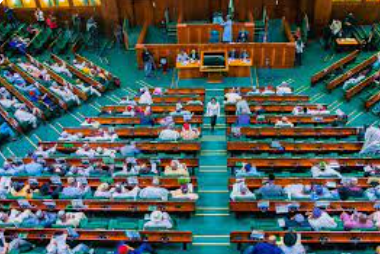The House of Representatives is poised to seek the insights of tax professionals regarding the potential ramifications of the Tax Reform Bills currently under consideration by the National Assembly. In a recent interview, Deputy Spokesman Mr. Philip Agbese emphasized the House’s commitment to engaging with the public on this matter. This legislative initiative follows the introduction of four executive bills by President Bola Tinubu and the Federal Executive Council, which aim to streamline tax processes, create a unified revenue service, and simplify financial responsibilities for businesses and ordinary citizens. The bills are the result of a comprehensive review of existing tax legislation conducted by a committee led by Taiwo Oyedele, which had been formed in August 2023 to analyze and harmonize tax policies.
In a notable development, the 36 state governors have requested that the federal government withdraw the proposed tax bills to allow for further discussions and consultations. This move followed the earlier discontent voiced by 19 state governors, who expressed concerns that the bills did not serve the interests of the northern states or state governments. Despite these objections, the Presidency has maintained a firm stance in favoring the continuation of discussions in Parliament regarding the bills while remaining open to potential alterations to address the governors’ concerns. This dynamic illustrates the tension between federal initiatives and state interests, particularly concerning tax policy, which holds significant implications for both governance and economic conditions across Nigeria.
Agbese has reiterated the House’s intention to facilitate public engagement through Town Hall meetings, where discussions about the bills will be encouraged. His remarks underscore the commitment to transparency and accountability, aiming to involve citizens in understanding the reforms and their potential impact on the national economy. He asserted that the House of Representatives, under Speaker Tajudeen Abass’s leadership, is dedicated to reinforcing its identity as “the People’s House.” This approach signifies a willingness to include public opinion in legislative processes and to clarify the obligations placed upon citizens, ensuring that taxpayers are not left in the dark about changes that could affect their financial well-being.
On the opposition front, House Minority Leader Kingsley Chinda has indicated that the minority caucus was already engaged in preliminary discussions regarding the tax bills prior to the governors’ position becoming public. Chinda explained that the caucus has initiated the formation of a team led by Deputy Chairman of the House Committee on Appropriation, Mr. Iduma Igariwey, to develop a comprehensive position paper on the bills. This proactive stance illustrates the minority caucus’s commitment to contributing meaningfully to the legislative process and advocating for what they believe to be the national interest as the bills approach their second reading.
Chinda further reassured stakeholders that the caucus’s eventual position would prioritize the broader interests of the country and its citizens. While acknowledging the necessity of tax payment, he opposed the concept of excessive taxation, arguing it could exacerbate poverty rather than foster economic growth. This perspective reflects the broader ideological divide regarding economic policy in Nigeria, emphasizing the need for a balanced approach that minimizes the burden on taxpayers while promoting welfare measures for lower-income groups. Chinda’s assertion that the legislative response should advocate for economic equity reinforces an essential dialogue about the multifaceted relationship between taxation, public expenditure, and social welfare.
As the House prepares to navigate the complexities of these tax reforms, it is clear that the interplay between federal intentions and state responses will shape the discourse around economic policy in Nigeria. The commitment to utilize Town Hall meetings and engage with tax experts reinforces a collaborative approach to governance, ensuring that the voices of citizens and stakeholders are heard in deliberations about laws that could significantly transform the landscape of taxation in the country. The outcome of this legislative process will not only set the tone for fiscal policy but also dictate the direction of socioeconomic inequalities within Nigerian society, emphasizing the need for carefully considered actions that reflect the collective aspirations of the populace.


